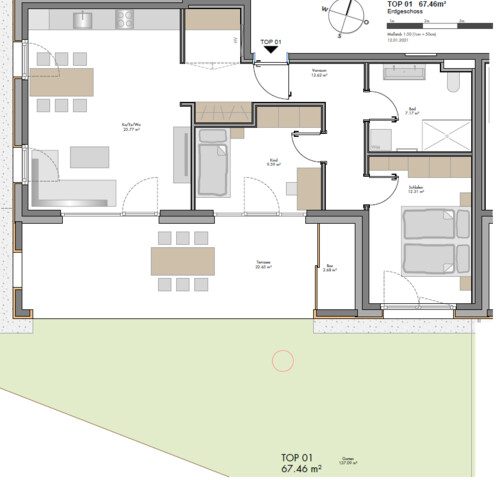Municipal Association Wants Competencies for Childcare

"Where we can perform the tasks best, are closest to the people, and have the highest competence, that's where we should do it," Municipal Association President Johannes Pressl (ÖVP) strongly advocates for a shift in competence. Municipalities should take on the full organizational and financial responsibility for childcare from nurseries to after-school care. There is a desire for local care offerings in the home municipality, which can be best organized by the municipalities.
Municipalities Rely on Cooperation for Childcare
There are already cooperation models in small and very small municipalities. The Vorarlberg municipal association KIBE in the Jagdberg region, for example, has completely taken over the administration of childcare and educational offerings for six municipalities. This eliminates the complex organization for them, provides more flexibility for the parents of the 400 children, and the staff can assist between locations as needed, mentioned Ulrike Porod from the municipal association as some of the advantages.
In the Waldviertel, 17 municipalities have organized themselves in the NÖ Childcare Association, which offers care for 300 children from zero to 12 years old. The offerings include, as with KIBE, lunch and homework supervision, and outside of the Christmas holidays, at least one of the facilities is always open. The municipalities also save costs through the cooperation model, emphasized association chairman Roland Zimmer. If he had organized childcare in his municipality of Bad Traunstein alone, the personnel costs per year would be more than three times as high, he calculated. The interest of other municipalities in the model is correspondingly high.
Through such cooperation, the municipalities could organize childcare together in a way that "meets the highest standards" and is affordable for parents, emphasized Pressl. "If we take responsibility for something, then completely. We don't just wash our hands of it."
For Minimum Standards and Basic Financial Equipment in Childcare
If childcare were to become a municipal matter, nationwide uniform framework conditions in the form of minimum standards would make sense from Pressl's perspective. Currently, kindergartens are a matter for the states, and accordingly, each state has its own rules, for example, for care ratios, group sizes, or the qualification of staff. "Minimum standards should be consciously named," said Pressl, but at the same time, "freedom of design in the local units" is needed.
It is also clear: If the municipalities take on this task, there must also be the appropriate basic financial equipment for it, said Pressl with a view to the negotiations on the Stability Pact. However, he would not question already established models like in Lower Austria, where the staff is currently provided by the state.
In return for taking over childcare, municipalities could, according to Pressl, withdraw from the health sector, to which they contribute 3.8 billion euros and at the same time have little say. The goal of the reform partnership is ultimately a disentanglement of competencies, and "health is not best placed with the municipalities." In this case, however, the financial equalization must be renegotiated accordingly.
The municipalities do have the best overview of kindergartens, admitted Carinthia's Governor Peter Kaiser (SPÖ) on Tuesday in the "Presse". Nevertheless, the responsibility for kindergartens - as for the entire education sector - should not shift from the states to the municipalities, but to the federal government, he reaffirmed his position in the competence discussion. Then, not every municipality would have to build its own kindergarten, and instead, "a decent educational center" with a kindergarten, elementary school, and music school could be established. Praise for Kaiser came promptly from the NEOS, who, with Christoph Wiederkehr, also provide the Minister of Education. The reform partnership must bring "sustainable structural reforms," with clear personnel competence and far-reaching autonomy for educational institutions, it was stated in a release.
(APA/Red)
This article has been automatically translated, read the original article here.
Du hast einen Hinweis für uns? Oder einen Insider-Tipp, was bei dir in der Gegend gerade passiert? Dann melde dich bei uns, damit wir darüber berichten können.
Wir gehen allen Hinweisen nach, die wir erhalten. Und damit wir schon einen Vorgeschmack und einen guten Überblick bekommen, freuen wir uns über Fotos, Videos oder Texte. Einfach das Formular unten ausfüllen und schon landet dein Tipp bei uns in der Redaktion.
Alternativ kannst du uns direkt über WhatsApp kontaktieren: Zum WhatsApp Chat
Herzlichen Dank für deine Zusendung.








